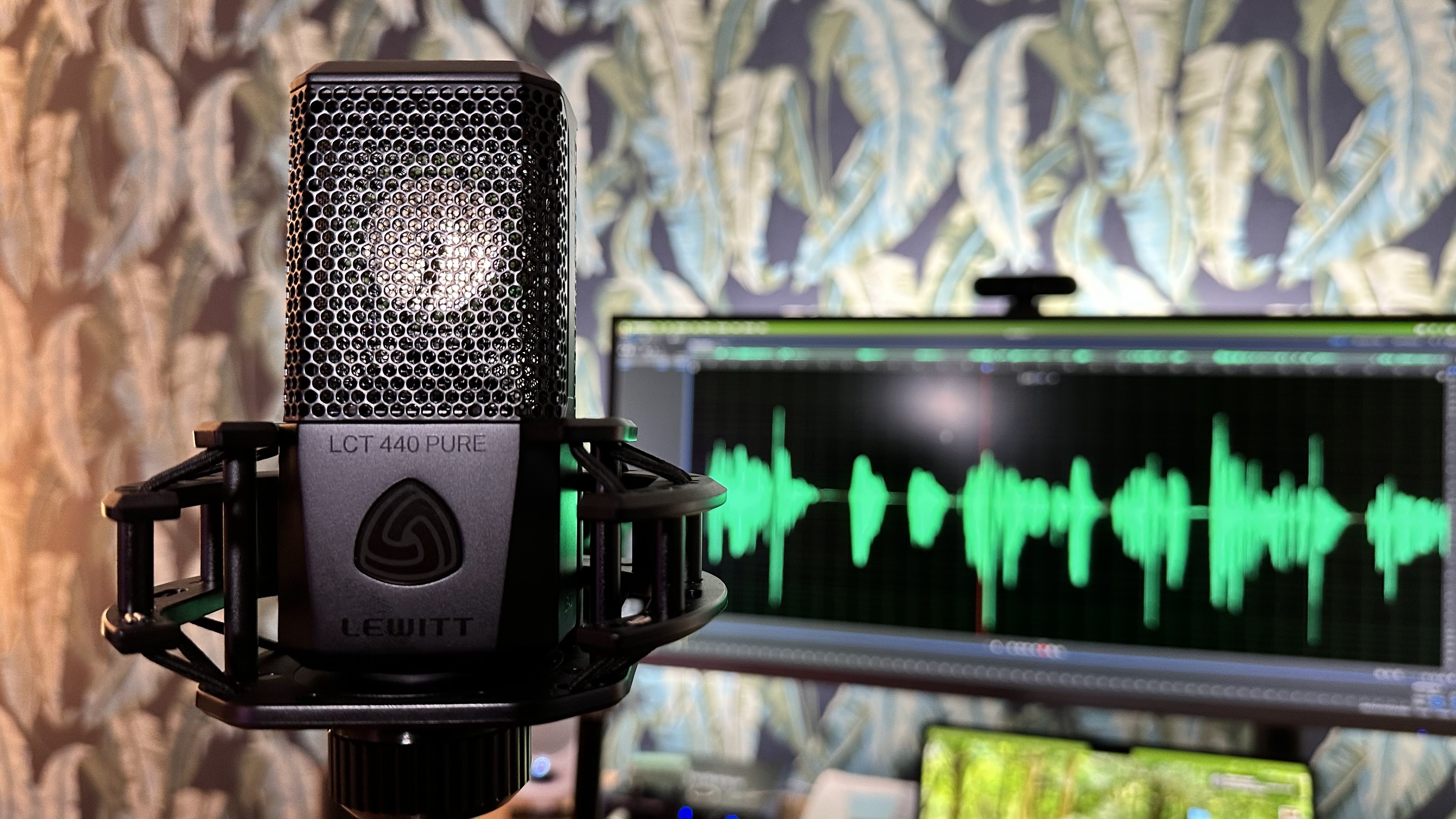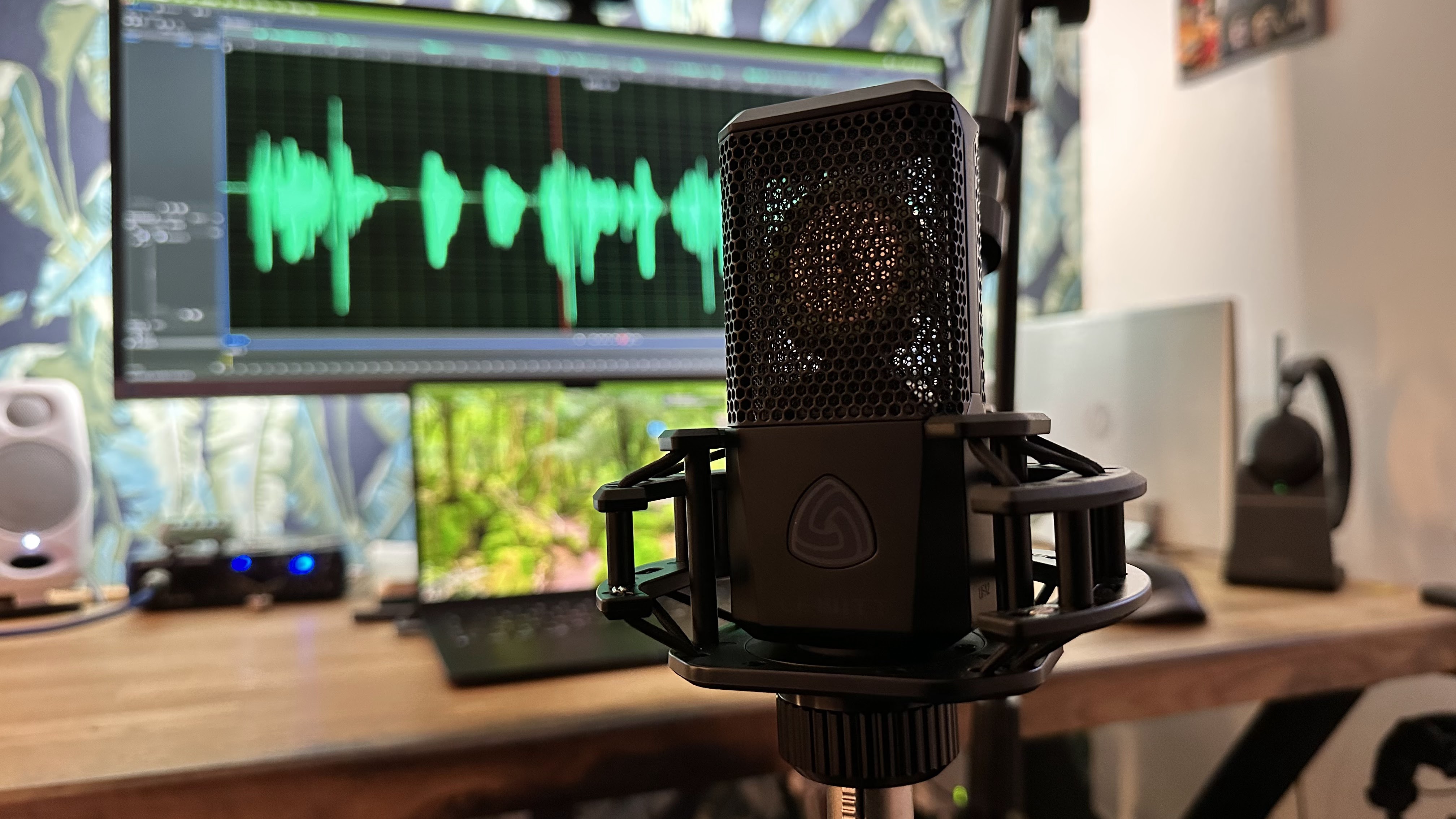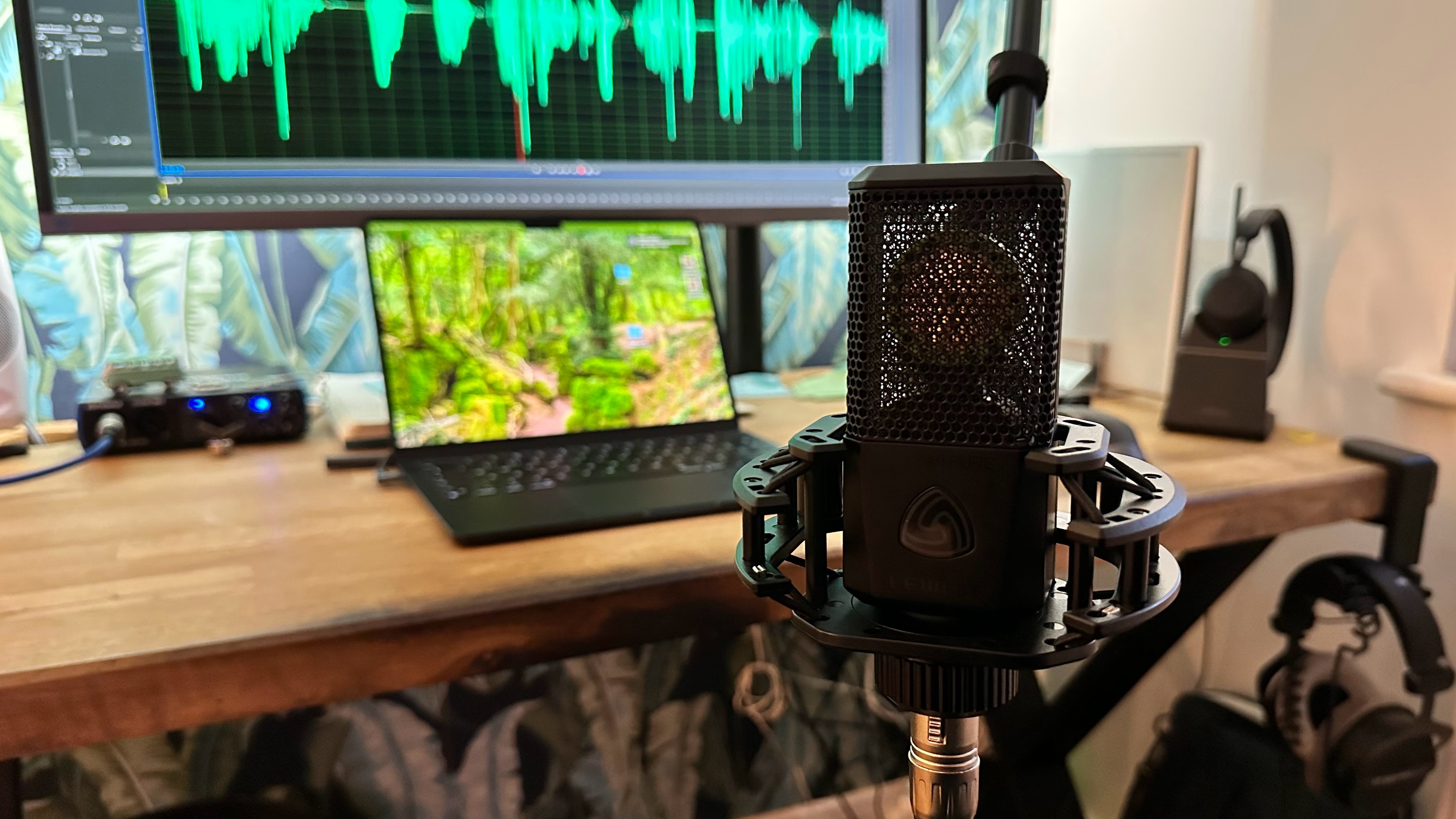MusicRadar Verdict
For the price, there simply aren’t many mics that can deliver the goods like the LCT 440 Pure. It may lack bells and whistles, but what it does, it does with style.
Pros
- +
Amazing design
- +
Versatile sound profile
- +
Bang for buck
Cons
- -
Basic feature set
MusicRadar's got your back
Lewitt LCT 440 Pure review: What is it?
We see a lot of microphones here at MusicRadar. From inexpensive USB mics to high-end studio grail mics, we’re good at spotting when greatness lands on our desk. So it was with great excitement that a package containing one of home studio YouTube’s perennial favourites, the Lewitt LCT 440 Pure, landed ready for us to put through its paces.
If you’re unfamiliar, the Lewitt brand is relatively - in the world of microphones - quite young. Founded in Austria in 2009, it has built a reputation for creating high-quality, beautifully designed recording microphones that offer an alternative to familiar brands like Shure and Neumann.
Today we're looking specifically at the Lewitt LCT 440 Pure, which is its mid-range condenser aimed at a range of studio applications including vocals, speech and acoustic instruments, although Lewitt claims it has more than enough ability to be classed as a proper studio all-rounder.
The LCT 440 Pure features a hefty 1” condenser capsule - which is a thing of beauty, if you’re into that kind of thing - and a fixed cardioid pickup pattern which may or may not be a benefit, depending on how you plan on using it. Inside the box you’ll get the mic and a hefty-looking shock mount, along with a pop filter, windshield and a handy carry case. It’s all very premium in its visual aesthetic and in the rigidity of the mic’s build. But how does the LCT 440 perform? Let’s take a look.
Lewitt LCT 440 Pure review: Performance & verdict

The first thing that hits you when you unpack the LCT 440 Pure from its box - and what a box, by the way - is the heft of it. This is a heavy microphone, more so than I was expecting, giving me immediate confidence that this was on the premium side of mid-range. Cast in stealthy die-cast zinc, it happily avoids the fingerprint magnet pitfalls of so much other black consumer technology. Branding on the front of the mic is subtle, instead letting the glorious 1” true condenser capsule take centre stage. As a large condenser mic, in name and form, the 440 Pure requires phantom power, but then benefits from the higher voltage produced when picking up a signal, creating a superior signal-to-noise ratio than you’d find with a typical small diaphragm condenser.
In use, this translates to improved loudness from recorded signals, which means you don’t need to drive a preamp as hard to get decent results, in turn meaning a lower noise floor - around 7dBA in this case - from your recordings. For acoustic guitars, for example, this allowed us to focus on the intricacies of the sound rather than the low-level hiss you might find from a small diaphragm equivalent.
Loading up Live and opening the frequency spectrum plugin, we could see a nice presence lift around 12kHz, which gave our acoustic guitar a nice breathy openness in the top end, however, we did find the low end was prone to becoming slightly boomy if left unchecked. While this can be fixed fairly easily, it would have been nice to be able to remedy the problem at source.
Want all the hottest music and gear news, reviews, deals, features and more, direct to your inbox? Sign up here.

If we’re honest, therein lies the LCT 440 Pure’s possible only negative point. This is undeniably a simple mic. Featuring only one pickup pattern, and no onboard controls, this is ideally suited to single users recording single things. You can use it to record acoustic instruments, or individual speakers and vocalists, and it will blow you away but it’s not the type of mic you’ll rely on for table-reads or podcasts with multiple speakers. If that’s what you’re looking for, the 440’s sister, the 441 Flex might be a better option as this has eight patterns you can choose from. We'd also like to have seen an onboard pad or filter to help tame some of those low-end frequencies, but this is a minor gripe.
What was impressive was the accessory haul you get with your new mic. The shock mount features a neat screw-in connection, which gave us confidence it’d withstand the occasional (accidental) kick of a mic stand, while the pop filter and windshield both combine neat design with genuine functionality. The magnetic snap of the pop filter, for example, made us smile. This is a well-made package, of that there is no doubt.
Essentially, what we’ve got with the Lewitt LCT 440 Pure is an excellently designed, premium mic with the ability to take sounds from a variety of sources and reproduce them to a high standard. Like, a really high standard. My battered old parlour acoustic, which has always been my litmus test for recording condenser mics, has honestly never sounded so good. And for that, I can only say good things about the LCT 440 Pure.
Lewitt LCT 440 Pure review: Hands-on demos
Podcastage
Dark Corner Studios
AudioHaze
Lewitt LCT 440 Pure review: Specification
- Type: Condenser
- Polar pattern: Cardioid
- Frequency range: 20Hz to 20kHz
- Self-noise: 7 dB (A)
- Max. SPL: 140dBSPL
- Connection: XLR
- Size: 138x52x36mm
- Weight: 310g
- Accessories: Pop shield, shock mount, windshield, carry case
- Contact: Lewitt
Chris Corfield is a journalist with over 12 years of experience writing for some of the music world's biggest brands including Orange Amplification, MusicRadar, Guitar World, Total Guitar and Dawsons Music. Chris loves getting nerdy about everything from guitar and bass gear, to synths, microphones, DJ gear and music production hardware.

